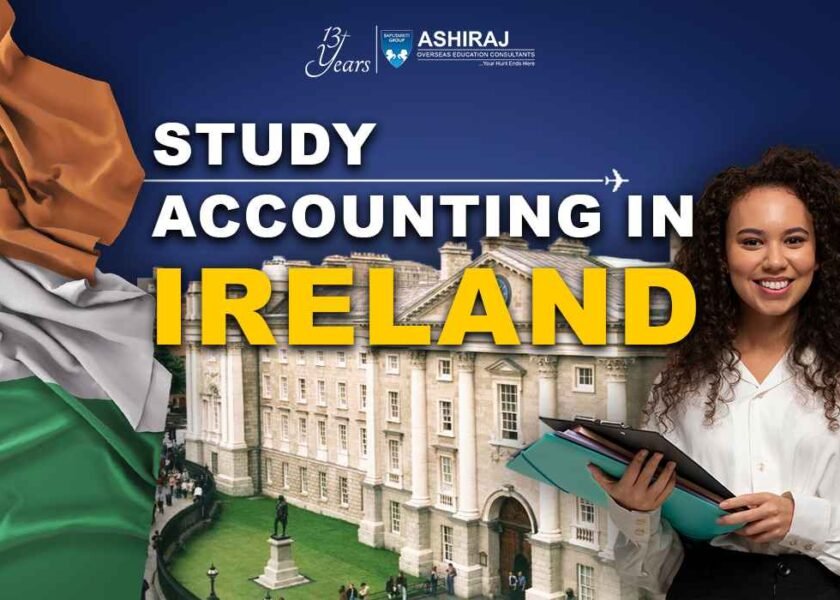
Accounting in New Zealand
Accounting in New Zealand is a vital aspect of the country’s economic landscape, playing a crucial role in ensuring financial transparency, regulatory compliance, and informed decision-making for businesses and organizations. With a robust regulatory framework and adherence to international accounting standards, New Zealand’s accounting practices are recognized for their reliability and integrity globally. The accounting profession in New Zealand encompasses a diverse range of services, including auditing, taxation, financial reporting, and advisory, catering to the needs of various industries and sectors across the nation.
Accounting in New Zealand is characterized by its commitment to upholding high professional standards and ethical conduct, overseen by regulatory bodies such as the New Zealand Institute of Chartered Accountants (NZICA) and the Financial Markets Authority (FMA). The profession continually evolves in response to changes in the business environment, technological advancements, and regulatory requirements, ensuring that stakeholders can trust the accuracy and reliability of financial information. As New Zealand’s economy continues to grow and diversify, the role of accounting remains integral in fostering economic stability, facilitating investment, and driving sustainable development.
Why to Study Accounting in New Zealand?
- Globally Recognized Qualifications: New Zealand offers internationally recognized accounting qualifications that are highly regarded worldwide, providing graduates with opportunities for global career advancement.
- Strong Regulatory Framework: With a robust regulatory framework aligned with international accounting standards, studying accounting in New Zealand ensures students learn best practices and ethical standards upheld in the profession.
- Practical Learning Experience: Many accounting programs in New Zealand incorporate practical learning experiences, such as internships and industry projects, enabling students to apply theoretical knowledge in real-world scenarios.
- Diverse Career Opportunities: Graduates of accounting programs in New Zealand have access to a wide range of career opportunities, including roles in auditing, taxation, financial analysis, and advisory services across various industries.
- Supportive Learning Environment: New Zealand’s universities and educational institutions offer a supportive learning environment with small class sizes, personalized attention from faculty, and access to state-of-the-art facilities.
- Cultural Diversity: Studying accounting in New Zealand provides students with the opportunity to immerse themselves in a multicultural environment, gaining valuable cross-cultural communication and collaboration skills.
- Quality of Life: New Zealand is renowned for its high quality of life, stunning natural landscapes, and vibrant cities, offering an ideal setting for a rewarding academic experience.
Studying accounting in New Zealand not only equips students with the necessary skills and knowledge for a successful accounting career but also offers a unique cultural and lifestyle experience.
Top Universities to Study Accounting in New Zealand
University | QS World University Ranking 2023 | Type of University | Average Annual Fees (NZD) | Programs Offered |
University of Auckland | 58 | Public | $30,000 – $40,000 | Bachelor’s, Master’s, and PhD in Accounting |
University of Otago | 184 | Public | $25,000 – $35,000 | Bachelor’s and Master’s in Accounting |
Victoria University of Wellington | 221 | Public | $28,000 – $38,000 | Bachelor’s, Master’s, and PhD in Accounting |
University of Canterbury | 240 | Public | $26,000 – $36,000 | Bachelor’s and Master’s in Accounting |
Massey University | 287 | Public | $24,000 – $32,000 | Bachelor’s, Master’s, and PhD in Accounting |
In New Zealand, several universities offer top-tier accounting programs, preparing students for successful careers in the field. These institutions, recognized for their academic excellence and research contributions, attract students from around the world seeking quality education in accounting. The University of Auckland, renowned for its strong business programs, leads the pack with its comprehensive offerings and high QS World University Ranking. Following closely are institutions like the University of Otago, Victoria University of Wellington, University of Canterbury, and Massey University, each providing a range of undergraduate and postgraduate accounting degrees at competitive fees. Studying accounting in New Zealand at these prestigious universities not only ensures a solid academic foundation but also opens doors to diverse career opportunities in the dynamic field of accounting.
Course Curriculum for Accounting in New Zealand
- Comprehensive Coverage: Accounting courses in New Zealand cover a wide range of topics, including financial accounting, management accounting, auditing, taxation, and business law, ensuring students gain a well-rounded understanding of the discipline.
- Emphasis on Practical Skills: The curriculum integrates practical learning experiences such as case studies, industry projects, and internships, enabling students to apply theoretical knowledge to real-world scenarios and develop practical skills valued by employers in the accounting profession.
- Focus on Technology: With the increasing role of technology in accounting, courses in New Zealand emphasize the use of accounting software, data analytics, and information systems, preparing students to adapt to technological advancements and meet the evolving needs of the industry.
- Ethical Considerations: Accounting programs in New Zealand underscore the importance of ethical standards and professional conduct, equipping students with the ethical framework necessary to navigate complex financial situations and uphold integrity in their practice.
- International Perspective: Given the global nature of business and accounting, courses often incorporate international accounting standards and practices, providing students with a broader perspective and preparing them for careers in the global marketplace. Studying accounting in New Zealand ensures students receive a comprehensive education that prepares them for success in the dynamic and competitive field of accounting.
Eligibility Criteria & Admission Requirements for MS in Accounting in New Zealand
- Language Proficiency: Applicants must demonstrate proficiency in English by providing either IELTS or TOEFL scores. For IELTS, a minimum overall band score of 6.5 is typically required, while for TOEFL, a score of at least 90 is commonly accepted.
- Standardized Tests: Depending on the institution, applicants may need to submit scores for either GRE or GMAT. The typical requirement for GRE is a combined score of 310 or higher, while for GMAT, a score of around 600 or above is often expected.
- Academic Credentials: Prospective students must possess relevant academic certificates, including transcripts and diplomas, demonstrating their educational background and qualifications for admission to accounting programs in New Zealand.
- Work Experience: While not always mandatory, some universities may consider work experience in accounting or related fields as part of the admission criteria, particularly for postgraduate programs.
Table: Standardized Test Scores
Test | Minimum Score |
IELTS | Overall band score of 6.5 |
TOEFL | Minimum score of 90 |
GRE | Combined score of 310 or higher |
GMAT | Score of around 600 or above |
Additional Requirements:
- Passport & Student Visa: International students must have a valid passport and obtain a student visa to study in New Zealand. The visa application process typically requires proof of acceptance into an accredited educational institution and sufficient funds to cover living expenses.
- Academic Certificates: Applicants must provide certified copies of their academic certificates, including transcripts and diplomas, to verify their educational qualifications.
- Work Experience: While not mandatory for all programs, relevant work experience in accounting or related fields may strengthen an applicant’s candidacy for admission to accounting programs in New Zealand.
Documents Required for Studying Accounting in New Zealand
- Passport: A valid passport is essential for international students applying to accounting programs in New Zealand, serving as proof of identity and nationality.
- Letters of Recommendation (LOR): Applicants typically need to submit two letters of recommendation from academic or professional references who can attest to their qualifications and suitability for the program.
- Statement of Purpose (SOP): A well-written SOP outlining the applicant’s academic background, career goals, and reasons for choosing accounting in New Zealand can strengthen their application.
- Curriculum Vitae (CV): A comprehensive CV highlighting the applicant’s educational qualifications, work experience, skills, and achievements is required as part of the application package.
- Official High School Transcripts: Applicants must provide official transcripts from their high school or secondary education institution, demonstrating their academic performance and completion of prerequisite coursework.
- Educational Certificates: Certified copies of educational certificates, including diplomas or degrees, are required to verify the applicant’s academic qualifications for admission to accounting programs.
- Work Experience Certificate: If applicable, applicants should submit a work experience certificate detailing their professional experience in accounting or related fields.
- Proof of Financial Resources: To obtain a student visa, applicants must demonstrate sufficient financial resources to cover tuition fees, living expenses, and other related costs during their studies in New Zealand.
Gathering these essential documents ensures a complete and competitive application for accounting programs in New Zealand, facilitating the admission process and enhancing the chances of success in pursuing academic and career goals in the field of accounting.
Admission Process for Accounting in New Zealand
- Research Institutions: Explore universities in New Zealand offering accounting programs and review their admission requirements, faculty expertise, and program offerings.
- Check Eligibility: Ensure you meet the eligibility criteria, including language proficiency, standardized test scores (IELTS or TOEFL, GRE or GMAT), academic qualifications, and any required work experience.
- Prepare Documents: Gather necessary documents such as passport, letters of recommendation (LOR), statement of purpose (SOP), curriculum vitae (CV), official high school transcripts, educational certificates, work experience certificate, and proof of financial resources.
- Submit Application: Complete the online application form for your chosen universities, providing accurate personal and academic information. Attach required documents and pay the application fee, if applicable.
- Monitor Application Status: Keep track of your application status through the university’s online portal or communication channels. Follow up on any additional requirements or updates from the admissions office.
- Receive Offer Letter: Upon acceptance, you will receive an offer letter from the university outlining the terms of admission, including program details, tuition fees, and any conditions to be met.
- Accept Offer and Apply for Visa: Accept the offer of admission and proceed to apply for a student visa through the New Zealand Immigration website. Submit required documents and pay the visa application fee.
- Arrive in New Zealand: Once your visa is approved, make necessary arrangements for travel and accommodation. Attend orientation programs provided by the university and settle into your new academic environment.
Following these steps ensures a smooth and successful admission process for accounting programs in New Zealand, paving the way for a rewarding academic journey in the field of accounting.
“Education is the most powerful weapon which you can use to change the world.”
Nelson Mandela
Cost of Accounting Course in New Zealand
- Tuition Fees: The tuition fees for accounting programs in New Zealand vary depending on the university, level of study, and program duration. On average, undergraduate programs can range from NZD 25,000 to NZD 40,000 per year, while postgraduate programs may cost between NZD 30,000 to NZD 45,000 per year.
- Living Expenses: In addition to tuition fees, students should budget for living expenses, including accommodation, food, transportation, and other personal costs. On average, monthly living expenses for students in New Zealand range from NZD 1,200 to NZD 2,000, depending on the city and lifestyle.
- Scholarships and Financial Aid: Many universities in New Zealand offer scholarships and financial aid to international students based on academic merit, financial need, or specific criteria. Students are encouraged to explore scholarship opportunities to help offset the cost of studying accounting in New Zealand.
- Part-Time Work: International students are allowed to work part-time while studying in New Zealand, which can help supplement their income and reduce financial strain. However, it’s essential to balance work commitments with academic responsibilities.
- Health Insurance: International students are required to have health insurance coverage while studying in New Zealand. The cost of health insurance varies depending on the provider and coverage options chosen.
Understanding the cost of studying accounting in New Zealand is essential for prospective students to budget effectively and plan their finances accordingly. With careful financial planning and consideration of available resources, pursuing accounting in New Zealand can be a rewarding investment in one’s education and future career.
Scholarships for Accounting Courses in New Zealand
Scholarship Name | Amount | Application Deadline | Eligibility Criteria |
University of Auckland | Up to NZD 10,000 | Varies | Academic excellence, enrolled in accounting program |
University of Otago | Up to NZD 15,000 | 1st October | High academic achievement, pursuing accounting degree |
Victoria University of Wellington | Up to NZD 12,000 | 15th September | Demonstrated financial need, enrolled in accounting program |
Massey University | Up to NZD 8,000 | 1st November | Academic merit, pursuing studies in accounting |
New Zealand Government Scholarships | Varies | Varies | Open to international students, criteria set by New Zealand government |
Scholarships play a vital role in supporting students pursuing accounting in New Zealand by providing financial assistance to cover tuition fees, living expenses, and other educational costs. These scholarships are awarded based on various criteria such as academic merit, financial need, or specific eligibility requirements set by the scholarship provider. Prospective students are encouraged to explore scholarship opportunities and adhere to application deadlines to maximize their chances of securing financial support for their studies in accounting in New Zealand.
Career Opportunities After Accounting in New Zealand
Job Profile | Average Salary (NZD) | Description |
Financial Accountant | $60,000 – $80,000 | Responsible for preparing financial statements, budgets, and conducting financial analysis. |
Management Accountant | $65,000 – $85,000 | Analyzes financial data to assist management in decision-making and strategic planning. |
Auditor | $60,000 – $75,000 | Conducts audits to assess financial operations, internal controls, and compliance. |
Tax Accountant | $65,000 – $80,000 | Prepares tax returns, provides tax planning advice, and ensures compliance with tax laws. |
Financial Analyst | $70,000 – $90,000 | Analyzes financial data, trends, and performance metrics to support investment decisions. |
Accounting graduates in New Zealand have a wide range of career opportunities across various industries and sectors. From traditional roles such as financial accountant and auditor to specialized positions like tax accountant and financial analyst, there is a demand for skilled accounting professionals in the job market. These roles offer competitive salaries and opportunities for career advancement, making accounting a lucrative and rewarding career path in New Zealand. With the country’s strong economy and emphasis on financial transparency and compliance, accounting professionals play a vital role in driving business success and economic growth.
Frequently Asked Questions About Accounting in New Zealand
Admission requirements typically include proof of language proficiency (IELTS or TOEFL), standardized test scores (GRE or GMAT), academic transcripts, and relevant work experience.
Yes, many universities offer scholarships based on academic merit, financial need, or specific criteria for international students pursuing accounting degrees.
The average tuition fee for accounting programs in New Zealand ranges from NZD 25,000 to NZD 45,000 per year, depending on the institution and level of study.
Career opportunities include roles such as financial accountant, management accountant, auditor, tax accountant, and financial analyst, with competitive salaries and opportunities for advancement.
Yes, international students are allowed to work part-time during their studies, typically up to 20 hours per week during the academic year and full-time during scheduled breaks.
The duration of accounting programs varies depending on the level of study. A bachelor’s degree typically takes three to four years, while master’s and doctoral programs may take one to two years or more.
International students are required to demonstrate proficiency in English by providing scores from tests such as IELTS or TOEFL, with minimum score requirements set by the institutions.
While not always mandatory, relevant work experience in accounting or related fields may strengthen an applicant’s candidacy for admission to certain programs.
Required documents typically include a valid passport, letter of acceptance from a New Zealand institution, proof of financial resources, and health insurance coverage.
Universities often assist students in finding accommodation options, which may include on-campus residences, private rentals, or homestays. It’s recommended to start the search early and explore various housing options.




